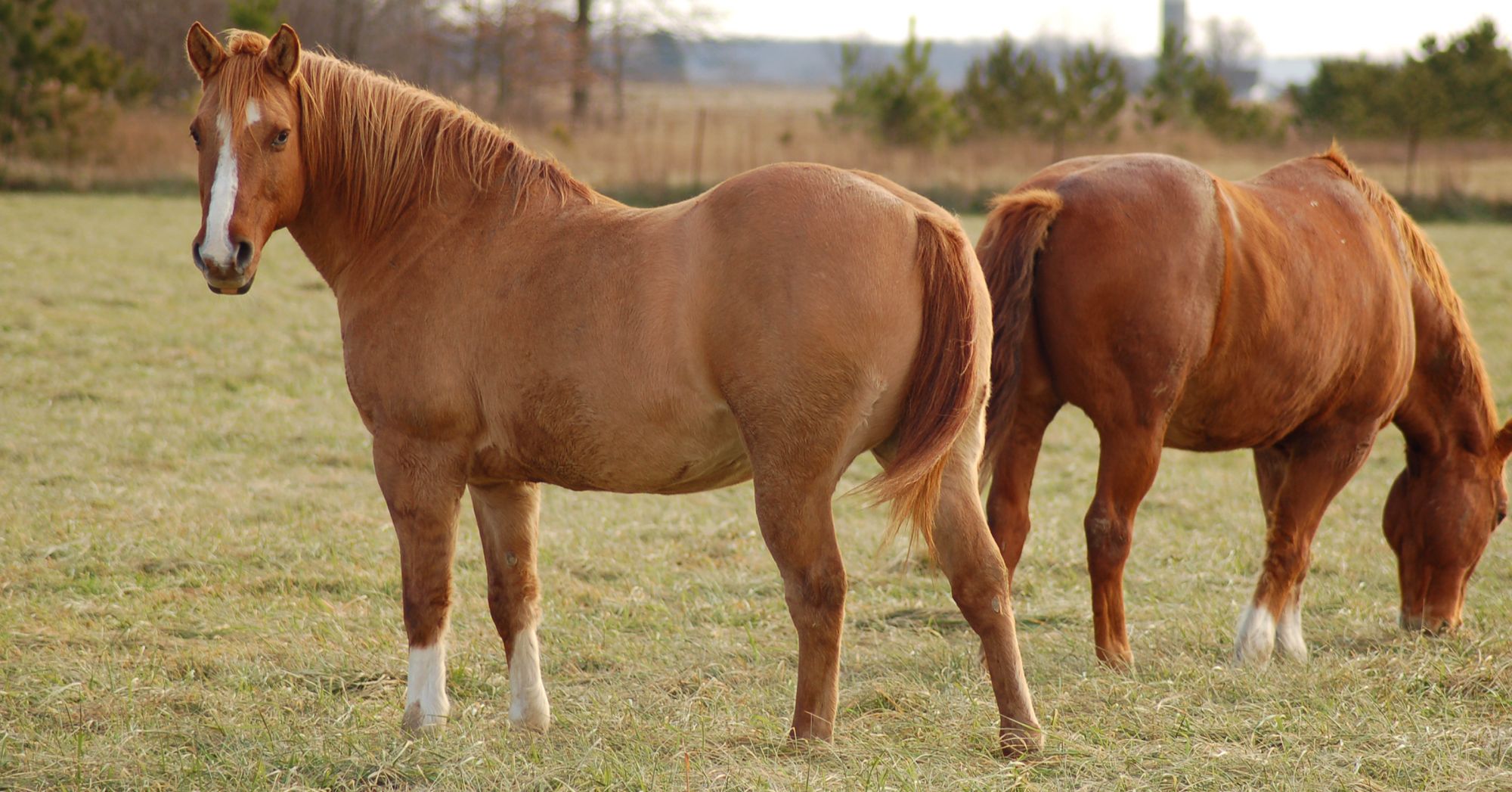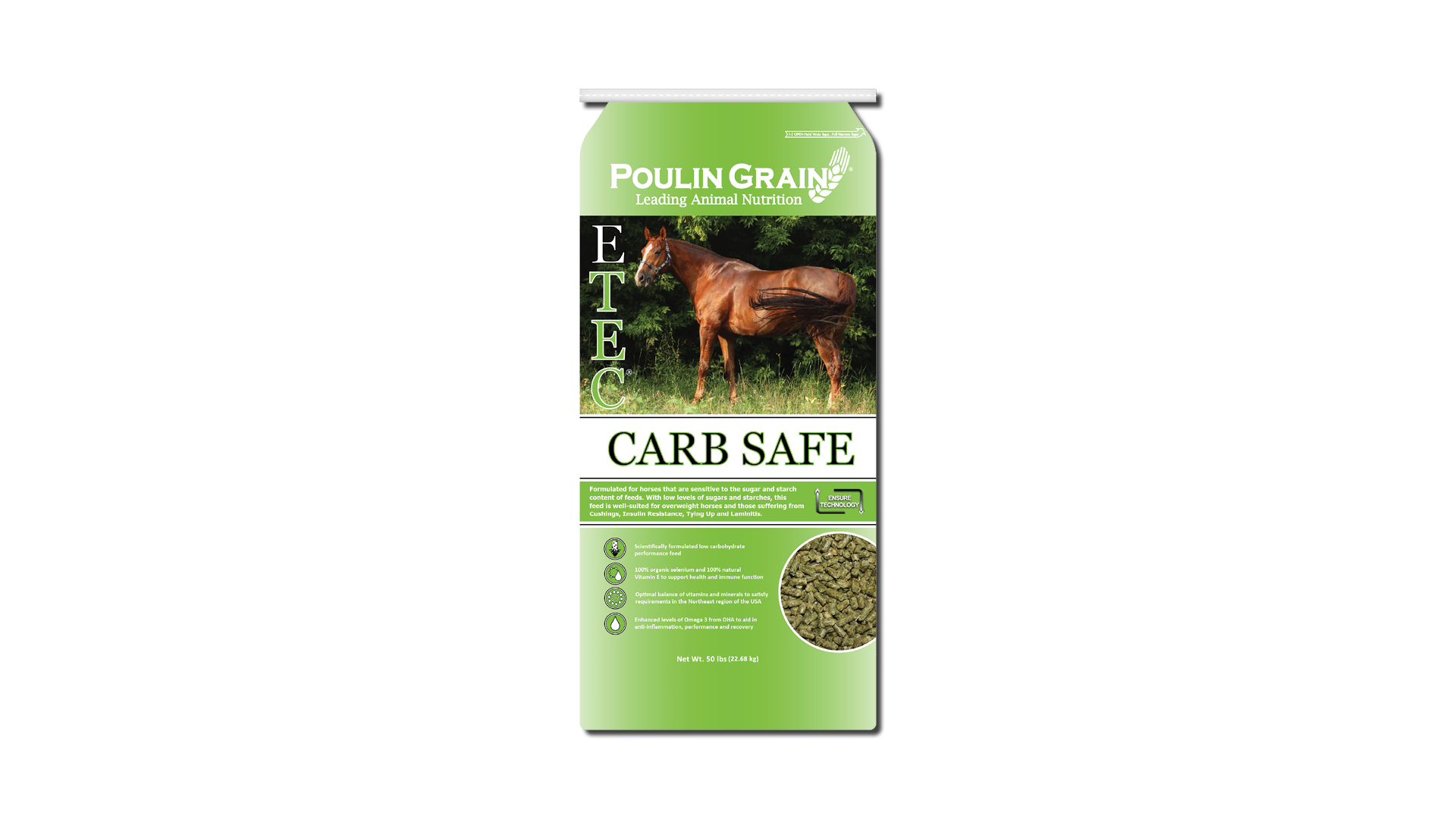What to Feed Older Cushings and Insulin Resistant Horses

Insulin resistance is a condition in which the body's cells become less sensitive to the insulin that is being produced. Insulin is a hormone that is secreted or produced and released from the pancreas. Insulin is released in response to an increase in glucose levels in the blood following a meal containing sugars or starches. Insulin then stimulates cells in the body to take up this circulating glucose from the blood. Once in the cells, glucose is used for energy or it is converted for storage as glycogen or fat. Horses suffering from insulin resistance show a breakdown of this system.
What are The Symptoms of Insulin Resistance in Horses?
- Abnormal fat deposits such as a cresty neck or lumpy fat patches which persist even if the horse loses weight, fatty sheath
- History of laminitis commonly induced by grass
- Puffiness in the hollows above the eyes
- Advanced symptoms include increased thirst and urination, loss of body condition and muscle wasting and low energy levels.
- Above normal insulin with normal blood glucose.
What are The Causes of Insulin Resistance in Horses?
The exact cause of insulin resistance is not known. However, several possible causes include:
- Diet – when fed high sugar/starch feeds (including forages) horses can become insulin resistant.
- Obesity – Overweight horses tend to be insulin resistant, as are "easy keepers" even if they are not obese.
- Age – Senior horses (over 20 years) seem to be more prone to insulin resistance.
- Breed – Ponies tend to have higher degrees of insulin resistance than Warmbloods or Standardbreds. Breeds that are prone to cresty necks and obesity, such as Morgans,some lines of Arabians, and Quarter horses, may be more likely to develop insulin resistance.
Diagnosis:
The best way to determine if your horse has insulin resistance is by getting your veterinarian to measure resting serum insulin concentrations or the combined glucose insulin test.
Feeding & Management:
Treatment for insulin resistance may consist of the following:
- Weight loss through diet and exercise if the animal is obese.
- Limiting carbohydrate (sugar/starch) intake through elimination of grain and high sugar feeds.
- Test pastures and hay for amounts of sugars present. Soaking hay if it is known to contain high amounts of sugars (> 10 to 12% soluble sugars) in hot water for 30 min or cold water for 60 min prior to feeding.
- Feeding beet pulp that has been soaked to remove sugar from molasses.
- Cut down on free intake of grass if the horse has a history of founder and/or is obese.
- Add fat (at least 6-10%) and fiber (at least 12%) to the diet.
Chromium and Insulin Resistance:
Chromium is a component of Glucose Tolerance Factor (GTF), which potentiates the action of insulin, helps to stabilize insulin receptors in the horse's body, and works to maintain normal blood glucose levels.
Poulin Grain's E-TEC® and EQUI-PRO® feeds now contain KemTRACE® Chromium, a highly bioavailable, organic source of chromium propionate.
By providing this highly effective source of chromium in the diet, insulin resistant horses may experience improved insulin sensitivity, and increased glucose utilization by cells, therefore improving overall health.
E-TEC® Carb Safe is specifically formulated for horses that are sensitive to the sugar and starch content of feeds. With low levels of sugars and starches, this feed is well-suited for overweight horses and those suffering from Cushings, Insulin Resistance, Tying Up and Laminitis, and is fortified with chromium for increased glucose utilization and improved immune function, growth and overall health.

Find more articles and information about Equine Chromium HERE


If you would like to learn more about Poulin Grain's complimentary hay sampling and analysis, diet balancing, or other personalized services, please visit poulingrain.com or call 800.334.6731 to speak to a feed specialist near you!
KemTRACE® Chromium is a registered trademark of Kemin Industries, Inc. USA.
Source: https://www.poulingrain.com/blog/insulin-resistance/
0 Response to "What to Feed Older Cushings and Insulin Resistant Horses"
Post a Comment